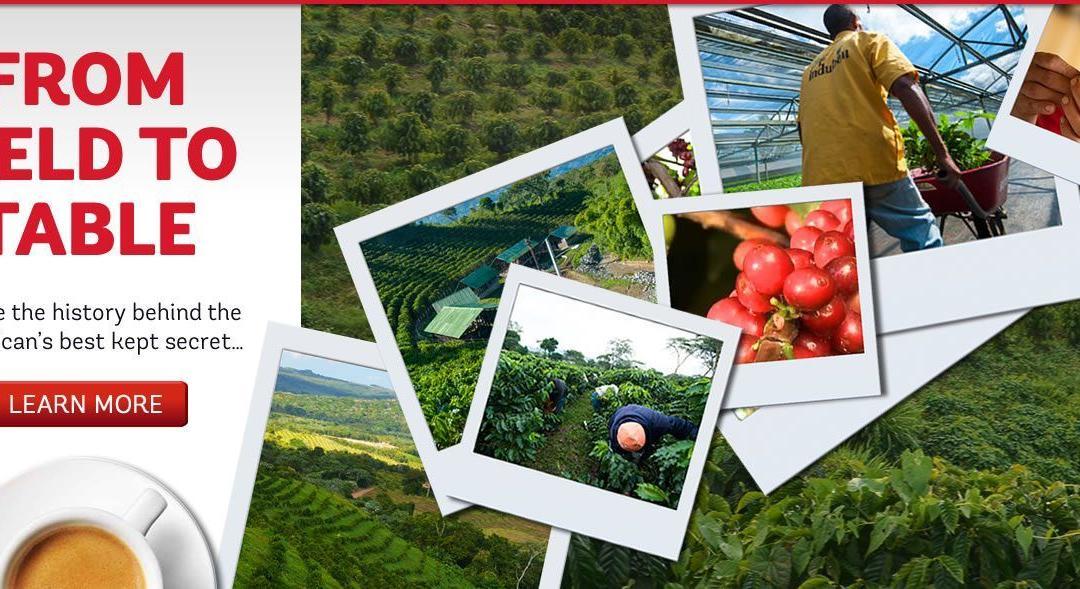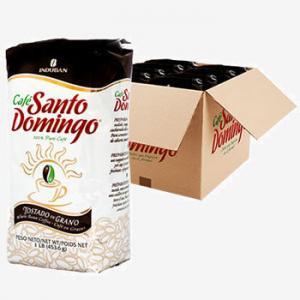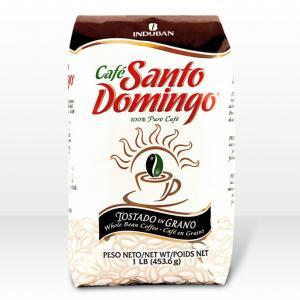Coffee, very much like wine, is slightly different in every region of the world that it is grown. Qualities of the soil and air, precipitation, elevation, agricultural practices, etc. … all highly influence what goes into your cup.
If you look at great wine producers of the world you will notice that they are also caretakers of their own vineyards. Being able to influence the product from beginning to end is critical to preparing the perfect cup of coffee just as it is with wine.
The makers of Cafe Santo Domingo have subscribed to this school of thought for nearly three quarters of a century. It is a a family run business with the distinction of being one of the only field to table coffees producers in the world. In an industry of roasters, being master coffee farmers is a huge advantage.
The family has always believed that controlling the process from start to finish adds value to the cup and millions of Cafe Santo Domingo drinkers agree. With the technology to rival any roaster on the planet as well as the human expertise that can only be acquired through love and hardship over 70 years allows them to produce a coffee product that is truly unique.
The company operates farms located all over the Dominican Republic and also purchases green beans through close knit relationships with local producers that go back across generations which are win-win for all parties involved.
The manufacturer not only pays above world coffee market prices for coffee to the producers but gives back to farmers to in the form of education from its team of agricultural engineers to help them grow a better quality product and get better yields, which means more money for the farmers. The company also provides assistance in times of crisis….most recently donating over 50,000 coffee bushes to farmers who had their farms hit with Coffee Rust (la Roya), a fungus which affects leaves on coffee bushes. If Dominican farmers suffer, Cafe Santo Domingo suffers so supporting them is both a matter of national pride as well as good business.
We are extremely proud to say that the manufacturer has recently had many of its farms UTZ certified This certification stands for sustainable farming and better opportunities for farmers, their families and our planet. The UTZ program enables farmers to learn better farming methods, improve working conditions and take better care of their children and the environment. The company is proud to continue working with this organization to keep certifying their farms and improving the lives of Dominican farmers.
Coffee production in the Dominican Republic is predominantly organic, though most farms are not officially certified. The use of pesticides, fungicides and other chemicals is a practice that Dominican farmers have never embraced, which I think we can all agree is a positive.
The majority of the coffee is also shade-grown, often under a canopy of cacao trees as well as pine, macadamia and guava amongst others. The main coffee varieties cultivated are Típica, Caturra, Catuaí, Bourbon and Mundo Novo.
The endeavor to produce enough green coffee to make Cafe Santo Domingo is no small feat. The coffee grows across 7 different Growing Regions: Baní, Azua, Cambita, Barahona, El Cercado, Peralta and Hatomayor with 25 distinct production zones, all with distinct microclimates, centered around the island’s 4 mountain ranges. This is the case because great coffee grows at altitude. The largest and highest range, the Cordillera Central, includes Pico Duarte which soars to more than 10,000 feet and is the highest peak in the caribbean. Some of the farms are not even accessible to modern vehicles.
After the beans are picked and processed they are graded to see that they meet the standard for Cafe Santo Domingo. Machines that take over 4000 pictures a second as the beans fly through and then are separated into silos by quality. The beans set apart for Cafe Santo Domingo are then aged for six months which helps develop the flavor of low acidity beans like the type grown in Dominican Republic. This practice was actually discovered hundreds of years ago when they used to ship coffee on long boat voyages to the first world and the practice has been preserved.
When the beans are ready, the company roasts the coffee to a French Roast which is the roast that best highlights their qualities. This dark roast level brings out the body of Dominican coffees while still preserving their aroma with dark chocolate flavor notes and noticeable absence of bitterness.
As soon as the coffee is roasted. It rests for a short while and then is ground employing the technology and care employed not to lose aroma in the grinding process due to increased temperatures. It is then bagged in triple laminated bags to preserve the flavor. The manufacturer does not roast the coffee until the stores are ready to receive it to ensure the best quality product possible for the coffee drinker.
A chef that picks his own herbs in his garden will probably deliver a finer, fresher meal than one that gets his herbs delivered in boxes by a company. People are catching on to that and that is the Farm-to-Table movement that has gaining serious momentum in North America and around the world. This is the type of experience Cafe Santo Domingo works to deliver in every single cup and has been committed to for the past 70 years.
When you taste you are tasting the deep tradition of Dominican coffee culture, and the labor or love of the Perello family and all the Dominican farmers who have worked to make it happen…all of whom take pride in every step between the field to your table.



